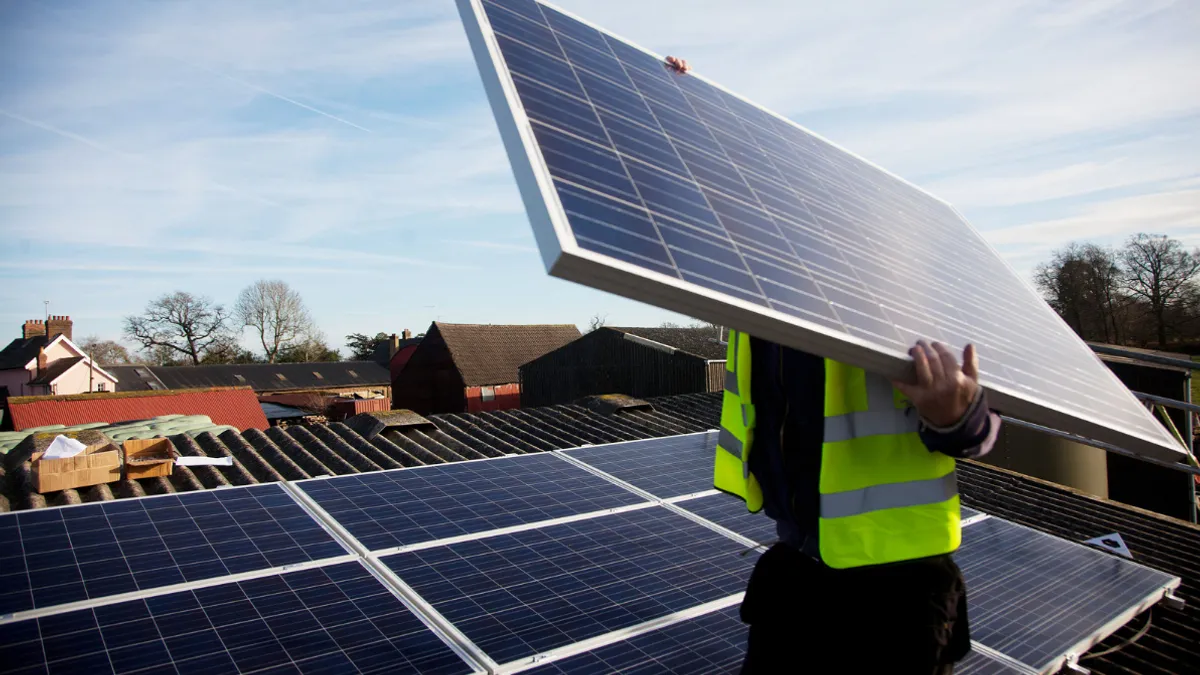Dive Brief:
- The New Jersey Senate on Monday passed Senate Bill 2276 to raise the state's solar energy targets, a move proponents say is a "short-term fix" needed to avoid the collapse of the market when the current goal is met later this year.
- The state's current target is 4.1% by 2028, but New Jersey is the fifth-largest market for solar in the country and is expected to reach that mark later on this year.
- The remaining question is whether or not Republican Gov. Chris Christie will sign the bill. His term expires next week when he will be replaced by Governor-elect Phil Murphy (D).
Dive Insight:
New Jersey's solar industry has seen boom-bust cycles before, guided by its solar energy target and solar renewable energy credit (SREC) prices. The Garden State saw a solar boom in 2011, but fell on rough times when prices for SRECs came tumbling down.
With the state's 4.1% target on the verge of being met, solar advocates want to avoid another crash. The bill updates New Jersey’s renewable portfolio standard to require 5.3% of the state’s electricity come from solar by 2022, up from the 4.1% target it is on the verge of reaching a decade early.
According to GTM Research and Solar Energy Industries Association, the state now has 2,234 MW of cumulative solar capacity installed and a 6,000-strong workforce.
“The legislation approved this week provides a crucial short-term fix that will enable the state’s solar industry to keep growing and adding jobs, while the state works on an even more ambitious long term plan," SEIA Vice President of State Affairs Sean Gallagher said in a statement. Sen. Bob Smith and Assemblyman Wayne DeAngelo spearheaded the effort to raise the solar target. SEIA is urging Christie to sign it before leaving office.
While the new target would be a short-term fix, SEIA vowed to work with the New Jersey Board of Public Utilities and the new administration to develop a long-term solar strategy for the state, including a successor for the SREC program.














